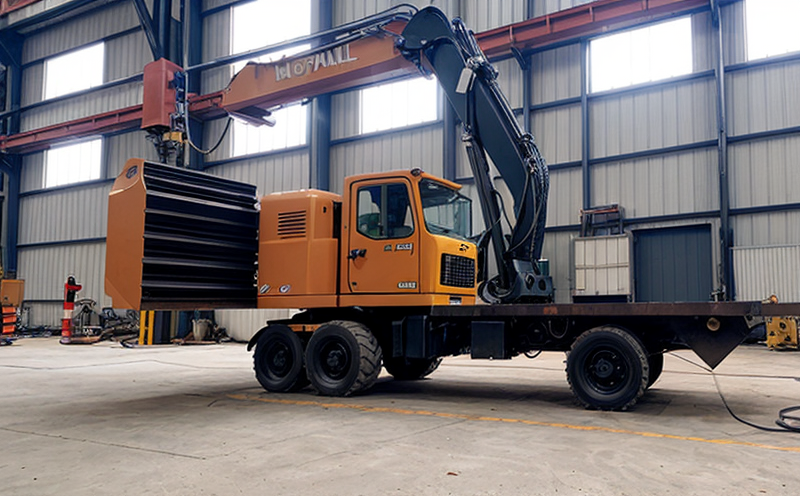Mechanical jack inspection
The inspection of mechanical jacks is a critical aspect of ensuring workplace safety and compliance with industry standards. Mechanical jacks are used in various sectors, including construction, manufacturing, logistics, and mining, where they play a vital role in lifting heavy loads safely and efficiently. Ensuring the integrity of these jacks through regular inspections can prevent accidents, minimize downtime, and reduce maintenance costs.
The inspection process is designed to evaluate both the structural soundness and operational reliability of mechanical jacks. This involves checking for signs of wear, corrosion, or damage that could compromise safety. The primary goal is to identify potential hazards early so they can be addressed before they lead to failures.
For the purposes of this inspection, we follow internationally recognized standards such as ISO 13756 and ASME PCC-1. These guidelines provide a framework for conducting thorough inspections that cover all critical aspects of mechanical jacks, including:
- The condition of the lifting cylinders
- Check for leaks or fluid contamination
- Evaluation of safety devices such as load limiters and emergency stop buttons
- Assessment of the jack's structural components like bolts, nuts, and welds
During the inspection process, we also conduct functional testing to ensure that the jack operates smoothly under various conditions. This includes loading tests to verify the jack’s lifting capacity and ensuring it can handle the expected loads safely.
The use of advanced non-destructive testing (NDT) techniques such as ultrasonic testing or magnetic particle inspection may be employed depending on the specific requirements and materials used in the construction of the jack. These methods help detect hidden defects that might not be visible through visual inspections alone.
Once the inspection is complete, we generate detailed reports that document every aspect of the evaluation. Our reports are comprehensive, providing all relevant data along with our recommendations for any necessary repairs or replacements. This ensures clients have clear insights into the condition of their mechanical jacks and what actions need to be taken next.
By adhering strictly to these high standards and utilizing modern inspection techniques, we ensure that each mechanical jack undergoes a robust evaluation process tailored specifically to its intended use within your organization. Regular inspections not only enhance safety but also contribute significantly towards meeting regulatory requirements set forth by organizations like OSHA (Occupational Safety & Health Administration).
Benefits
Regular mechanical jack inspections bring numerous benefits that extend beyond mere compliance with legal requirements. For one, these inspections significantly reduce the risk of accidents involving heavy lifting operations, thereby protecting both employees and equipment from potential harm. By identifying issues early through rigorous testing procedures, we can prevent costly repairs or replacements down the line.
Another significant advantage lies in improved operational efficiency. With routine maintenance recommendations addressed promptly based on our inspection findings, you’ll experience less downtime associated with unexpected failures of mechanical jacks. This increased availability translates directly into higher productivity levels across your operations.
In addition to enhancing safety and reliability, thorough inspections contribute positively towards maintaining a good reputation among stakeholders such as clients, suppliers, regulators, etc. Demonstrating adherence to best practices shows commitment to excellence in safety management systems which can bolster trust within the industry.
From an environmental perspective, regular maintenance helps extend the lifespan of mechanical jacks by preventing premature disposal due to unforeseen failures. This aligns with broader sustainability goals while also contributing cost savings over time through reduced resource consumption and waste generation.
Customer Impact and Satisfaction
The implementation of regular mechanical jack inspections has a direct positive impact on customer satisfaction by ensuring consistent high-quality performance across all lifting operations. Our clients benefit from reliable machinery that operates safely and efficiently, reducing the likelihood of accidents during critical tasks.
A satisfied customer base translates into greater loyalty and repeat business opportunities for our clients. Moreover, meeting regulatory expectations through meticulous inspection practices helps build a strong reputation within your sector, fostering long-term relationships with key partners.
Furthermore, by addressing any identified issues promptly via our comprehensive reports, we enable faster resolution times which contribute to quicker recovery periods after maintenance activities are carried out. This enhances overall customer satisfaction levels as there is minimal disruption experienced during routine servicing processes.
Competitive Advantage and Market Impact
The ability to provide reliable mechanical jack inspections offers a distinct competitive edge in today’s market where safety standards are increasingly stringent. Our approach not only meets but exceeds regulatory requirements, giving your organization an advantage over competitors who may not have such stringent quality control measures in place.
By demonstrating leadership in maintaining safe working environments, you position yourself as a preferred choice for clients looking to partner with companies committed to excellence in safety management practices. This can lead to increased market share and stronger brand recognition among peers.
In terms of operational efficiency, our meticulous inspection processes ensure that your mechanical jacks remain in optimal condition at all times. This translates into reduced maintenance costs associated with premature failures or breakdowns, allowing you to allocate resources more effectively towards other areas requiring investment.





